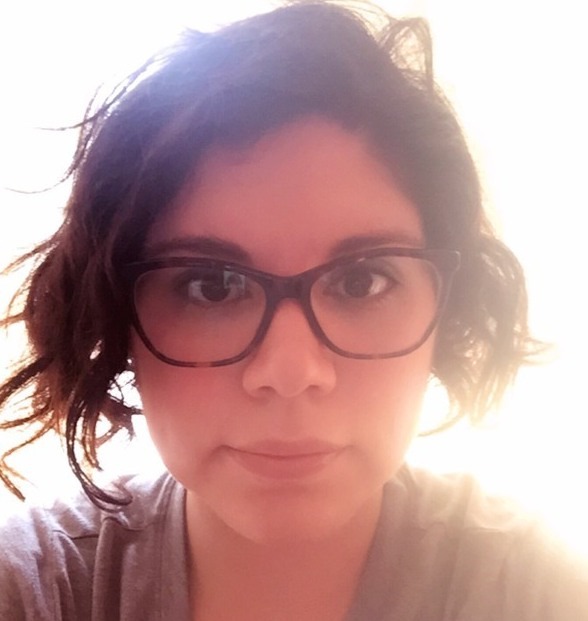If you are you considering an academically rigorous online TEFL certificate course, read on! This blog series, “Is the Bridge IDELTOnline™ Course Right for Me?”, written by IDELTOnline instructor, Ann Leonard, gives you the opportunity to deeply examine the Bridge IDELTOnline course (International Diploma in English Language Teaching™). In this post, you’ll get to know a cross-section of graduates who recently completed 12-week IDELTOnline training.
In order to confidently commit to an online course, it would be great to get a feel for the coursework first, right? This 2nd post in my IDELTOnline series introduces three recent IDELT graduates. They share their backgrounds, reflections of the course, and summaries of the research they submitted as final projects. Hopefully, you find this information useful as you consider the best TEFL certification course for you.
IDELTOnline student: Rose Mary

Country of citizenship and residence: Chile
Educational Background: Physical Anthropology Major (studies unfinished)
Current profession: Work-at-home mom, English Teacher, Tutor and Translator
Reasons for taking IDELTOnline: I realized that I wanted to become a teacher and that I love teaching language specifically. I felt that apart from improving my prospects in the job market in Chile and giving me a competitive edge, that it would also give me a better foothold into teaching, help me improve upon my knowledge and build upon my experience as well as give me new tools to apply with my students; all the while fitting into my very busy schedule.
Rose Mary’s Research Summary: The Importance of Using Task-Based Learning with Adult Learners
“Before making any consideration about using a certain methodology with adult learners, we must first take into account what teaching adults entails…While some of the debate focuses on pedagogy and how children learn language, it is no less of an important issue in andragogy. Finding methodologies that best assist adult learners in acquiring a language …by understanding what it is that adult learners, in particular, bring into a classroom in terms of strengths and weaknesses.
The first and most difficult issue of teaching adults is that class time is extremely precious and must be used to the fullest extent. In a Task-based approach, “the teacher doesn’t pre-determine what language will be studied, the lesson is based around the completion of a central task and the language studied is determined by what happens as the students complete it.”
Instructor’s Note: Rose Mary applied this research to develop a lesson plan in which all activities were based on a task-based approach.
Rose Mary’s reflections on the IDELTOnline course:
The course met all of my expectations and more. I did not anticipate how challenging the course would be, however since it was imparted in such a supportive manner (despite the online medium) it became a growth experience and led me to some interesting questions and observations about myself as an educator and about what I wish to impart, as well as what my educational and professional goals are. Furthermore, it was lovely connecting with people from different backgrounds and getting their opinions, expertise and help, as well as being able to provide my own. Overall, it was a wonderful and affirming learning experience.
IDELTOnline student: Michelle

Country of citizenship: Jamaica
Country of residence: Qatar
Educational background
-Master of Science in Technical and Professional Communication from Florida Institute of Technology, Florida, USA
-Bachelor of Arts in Spanish Language
Current profession: English Teacher in Qatar
Reason for taking the IDELTOnline: To gain additional knowledge and expertise in teaching.
Michelle’s Research Summary: Using a Lexical Approach
“This research explores the use of ‘pre-fabricated’ word units, or lexical chunks, to aid second language acquisition. It briefly considers what lexical chunks are, why a focus on this approach can be applied to language learning, … and what studies have revealed about using such an approach.
…How can this approach be executed in the classroom? …Students can be trained in how to use these corpora to become autonomous learners; becoming responsible for their own learning.”
Instructor’s Note: Michelle’s project allowed her to explore multiple interests of incorporating a lexical approach to teaching and developing learner autonomy.
Michelle’s reflections on the IDELTOnline course:
The course introduced teaching techniques and methods that were new to me. The course got progressively more challenging which kept me engaged and focused. The course instructor and the course itself prepared us well for embarking on new teaching adventures. The instructor was patient, kind, and well informed. The course book explained concepts in a straightforward manner, which made us able to manage the course successfully.
IDELTOnline student: Dalal
Country of citizenship: Kuwait
Country of residence: Kuwait
Educational background: British School of Kuwait, K-12; Undergraduate degree in Interior Design, American University, Sharjah
Current profession: Art & Design Teacher, Middle School
Reason for taking the IDELTOnline: To attain credibility to teach English, which is the perfect subject to combine with Art, as both are forms of language that complement each other practically, especially when connecting the two in-class activities.
Dalal’s Research Summary:
“Arab students face difficulty in learning English due to the fundamental and sociocultural differences between the Arabic language and English…. As Arabic is a Semitic language, its morphology is extremely different from English, where not even the alphabetical characters are shared between the two languages. …Therefore, Teaching Bedouin students poses complications, as the instructor must have background knowledge in their culture, values, and inter-social codes in order to be able to lower students’ affective filter…”
Instructor’s Note: Dalal chose to use her project to research theories of language acquisition related to her current teaching context; satisfying course requirements while preparing to better serve her current students.
Dalal’s reflections on the IDELTOnline course:
The IDELTOnline course exceeded my expectations, as the material covered initiated a self-awareness and consciousness of the impact and effectiveness of the style in which I learnt and acquired the English language, ultimately contributing immensely to improving my current teaching style, which has become more humanistic. Exposure to fellow students with diverse backgrounds was a delightful source of information and education as well. I couldn’t have asked for better peers.
Parting advice from an IDELT Instructor: Don’t Fear the Required Research Project
The final projects students shared here consist of a short, independent research paper on a topic of interest and a lesson plan that demonstrates the application of that research. We start discussing the final project weeks in advance at live, online sessions that happen 4 times per course, so students are generally eager and excited to begin when the time rolls around. Prior teaching experience is not mandatory in the IDELT, as everyone is encouraged to incorporate unique life experience into the course conversation.
Students exit the IDELTOnline as teacher researchers with the confidence to articulate teaching philosophies on-the-job or for job interviews. As an IDELT instructor, I have witnessed the beautiful growth in confidence and skill that my students experience. Isn’t that alone worth the time and energy? I hope that and more for you in your educational journey!










